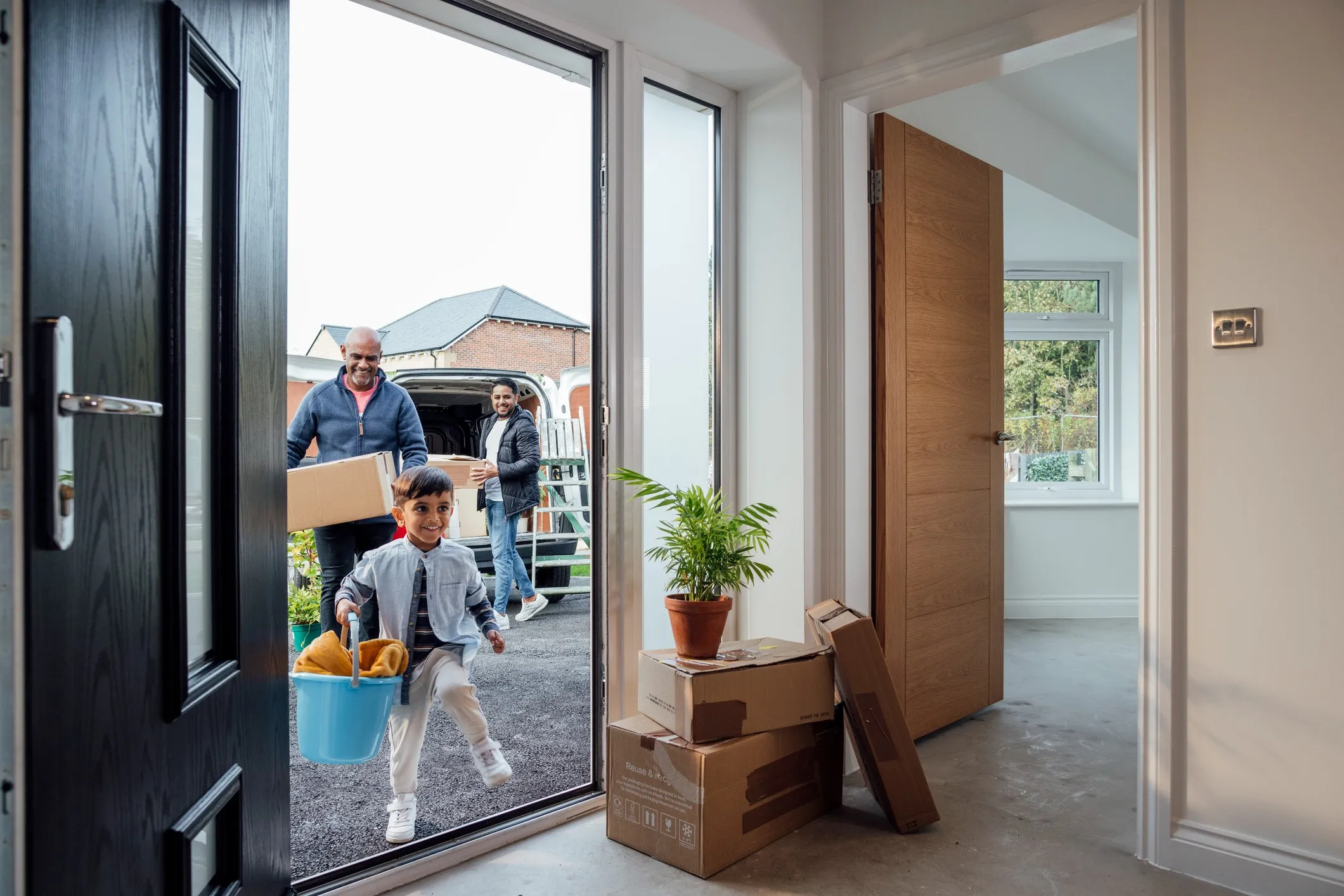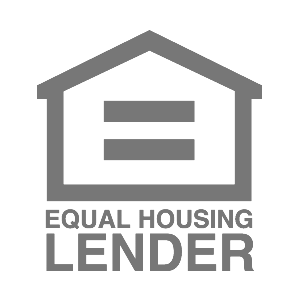
There are lots of decisions to make when you’re buying a house. You have to choose which neighborhood you want to live in, which features are non-negotiable and what style of house you want—and that’s not even touching on finances.

Get the cash you need with a low-interest personal loan today
You’ll also have to shop for a mortgage, which means your credit rating will also be a big part of the equation. If your scores are too low to qualify for good rates or a loan, you’ll need extra time to build them up before applying.
In This Article
What credit score do you need to buy a house?
There’s no set requirement for the minimum credit score to buy a house, but most mortgage lenders require scores of 620 or higher.
The score requirement can vary, however, depending on the type of loan you’re looking for. For example, you only need a 500 credit score for a house if you’re using an FHA loan, while you may need a minimum of 700 for a jumbo loan.
But your goal shouldn’t just be to qualify for a loan. The higher your scores are, the more loan approvals you’ll get, and if you have good credit, you’re more likely to be approved for loans with low APR.
Why credit scores matter when buying a house
Your credit scores have a direct impact on whether or not you qualify for a mortgage.
In addition to your income, debt, assets and employment history, lenders will review your credit reports and scores to determine if you’re creditworthy and to set your loan terms.
The better your scores are, the more likely you are to receive flexible and more affordable terms, including the following:
- Lower down payment
- Lower interest rates
- Fixed interest rates (versus variable)
How much could you save on your mortgage by improving your scores? According to FICO, you could save six figures on interest rates alone.
FICO shows that homebuyers with scores between 620 and 639 have an average APR of 8.797%, while buyers between 760 and 850 are at 7.208%. That might not sound like much, but for a $300,000 loan, it’s a difference of $118,035 in total interest charges and an extra $327 toward the mortgage payment each month.
How to improve your credit score before buying a house
Credit scores can be confusing, and there is a lot of misinformation about how they work. Therefore, it’s essential to understand what can help improve your scores before making any credit moves. Here are some steps that you can take:
1. Pull your credit information
Visit AnnualCreditReport.com to pull free copies of your three credit reports (from Experian, Equifax and TransUnion).
2. Dispute errors
If you find incorrect information on your credit reports, such as an account that doesn’t belong to you or a “missed” payment that you actually made, contact the reporting creditor or follow the instructions on the report that tells you how to file a free dispute.
3. Review your scores
Check to see if your bank or a creditor gives you free access to a version of your credit scores. Keep in mind that these free scores may be different from your mortgage credit scores, but they can still give you an idea of where you stand.
4. Keep making on-time payments
Avoid a major hit to your credit scores by staying current on your credit card and loan payments.
5. Improve your debt-to-credit ratio (DTC)
Nearly ⅓ of your credit score calculation is based on how much of your available credit you’re using. In other words, you can improve your credit scores by reducing and decreasing your credit card balance(s) or increasing your credit card limit(s). A debt consolidation loan may also help you reduce interest rates and pay off credit card debt faster.
6. Become an authorized user
If a loved one has a credit card account in good standing, ask them to add you to the account as an “authorized user.” After they do, the account information will impact your credit scores. This is one of the fastest and easiest ways to improve your scores since it doesn’t require you to apply for or qualify for a new account.
7. Avoid new applications
You can lose up to five points each time you apply for a new credit card or loan, and you’ll lose even more points when you open a new account. So, you should avoid applying for new accounts while preparing to shop for a mortgage.
Building good credit takes time
Most people can’t make significant improvements to their credit scores overnight. At minimum, it can take 30 days or more for new information to appear on your reports and affect your scores. For big improvements, it could take a year or more.
With that in mind, try not to wait until the last minute to prepare for homebuying, whether you need to save for your down payment or improve your credit score to buy a house. If you want a good mortgage—one you can afford to maintain for up to 30 years—you may need to start working on your savings and credit at least a year before you apply.
Frequently asked questions about what credit score is needed to buy a house
What is a good credit score to buy a house?
To qualify for the best mortgages available, you’ll likely need credit scores of 760 or higher. But each lender has a different minimum requirement, and some may offer you good terms with lower scores.

Get the cash you need with a low-interest personal loan today
How can I improve my credit score to buy a house?
In addition to making on-time payments on your debt, which helps improve your scores slowly, you can speed up the process by:
- Reducing your debt balances
- Requesting increases to your credit card limits
- Avoiding new credit applications
- Keeping old credit card accounts open
- Asking a loved one to make you an “authorized user” on a credit card account that’s in good-standing
Can I get a mortgage with a low credit score?
You can get mortgages from most lenders with credit scores of 620 or even lower. Certain government-backed loan programs, such as FHA loans allow scores as low as 500. Just be cautious since private lenders who work specifically with low credit scores can be expensive and risky.
Written by Sarah Brady
Sarah Brady is a financial writer and speaker who’s written for Forbes Advisor, Investopedia, Experian and more. She is also a former Housing Counselor (HUD) and Certified Credit Counselor (NFCC).
Read more:
- Should I Pay Off Debt or Save for a Down Payment?
- How Does Debt Impact Your Ability to Buy a House?
- Is Remodeling an Old Fixer-Upper Worth It?
- How Much Does it Cost to Renovate a House?
- Buying a Home for the First Time: What You Need to Know
All personal loans made by WebBank.
Eligibility for a home equity loan or HELOC up to the maximum amount shown depends on the information provided in the home equity application. Depending on the lender, loans above $250,000 may require an in-home appraisal and title insurance. Depending on the lender, HELOC borrowers must take an initial draw of the greater of $50,000 or 50% of the total line amount at closing, except in Texas, where the minimum initial draw at closing is $60,000; subsequent HELOC draws are prohibited during the first 90 days following closing; after the first 90 days following closing, subsequent HELOC draws must be $1,000, or more, except in Texas, where the minimum subsequent draw amount is $4,000.
The amount of time it takes to get funds varies. It is measured from the time the lender receives all documents requested from the applicant and depends on the time it takes to verify information provided in the application. The time period calculation to get funds is based on the first 4 months of 2023 loan fundings, assumes the funds are wired, excludes weekends, and excludes the government-mandated disclosure waiting period.
For Texas home equity products through Prosper, funds cannot be used to pay (in part or in full) non-homestead debt at account opening.
Depending on the lender, qualified home equity applicants may borrow up to 80% – 95% of their primary home’s value and up to 80% – 90% of the value of a second home. In Texas, qualified applicants may borrow up to 80% of their home’s value. HELoan applicants may borrow up to 85% of the value of an investment property (not available for HELOCs).
Home equity products through Prosper may not be available in all states.
All home equity products are underwritten and issued by Prosper’s Lending Partners. Please see your agreement for details.
Prosper Marketplace, Inc. NMLS# 111473
Licensing & Disclosures | NMLS Consumer Access
